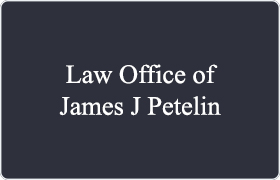Colfax White Collar Crime Lawyer, California
Sponsored Law Firm
-
 x
x

Click For More Info:
-
Law Office of James J Petelin
1550 Humboldt Road, Suite 4 Chico, CA 95928» view mapDivorce & Family Law Effective, Client-Focused Representation
James Petelin is a practicing attorney in the state of California who focuses on Family Law.
800-943-9701
Richard Thomas Dudek
✓ VERIFIEDCriminal, Felony, Misdemeanor, White Collar Crime, DUI-DWI
Certified Criminal Law Specialist
Richard Dudek knows the Sacramento courts, procedures and prosecutors. Our highly skilled defense team includes licensed private investigators who use... (more)
James P. Mayo
State Appellate Practice, Federal Appellate Practice, White Collar Crime, Professional Malpractice
Status: In Good Standing
Malcolm S. Segal
Litigation, White Collar Crime, Securities Fraud , Corporate
Status: In Good Standing
James Graham Noyes
Energy, Natural Resources, White Collar Crime, Administrative Law
Status: In Good Standing Licensed: 33 Years
David Alkire
Litigation, Lawsuit & Dispute, White Collar Crime, Criminal
Status: In Good Standing Licensed: 52 Years
John Joseph Casey
Federal Appellate Practice, White Collar Crime, Administrative Law, Personal Injury
Status: In Good Standing Licensed: 18 Years
Martin Ruano
Workers' Compensation, White Collar Crime, Criminal, Business
Status: In Good Standing Licensed: 16 Years
Dustin D'Jamal Johnson
Other, Employee Rights, White Collar Crime, Criminal
Status: In Good Standing Licensed: 20 Years
 James Petelin Chico, CA
James Petelin Chico, CA AboutLaw Office of James J Petelin
AboutLaw Office of James J Petelin Practice AreasExpertise
Practice AreasExpertise

